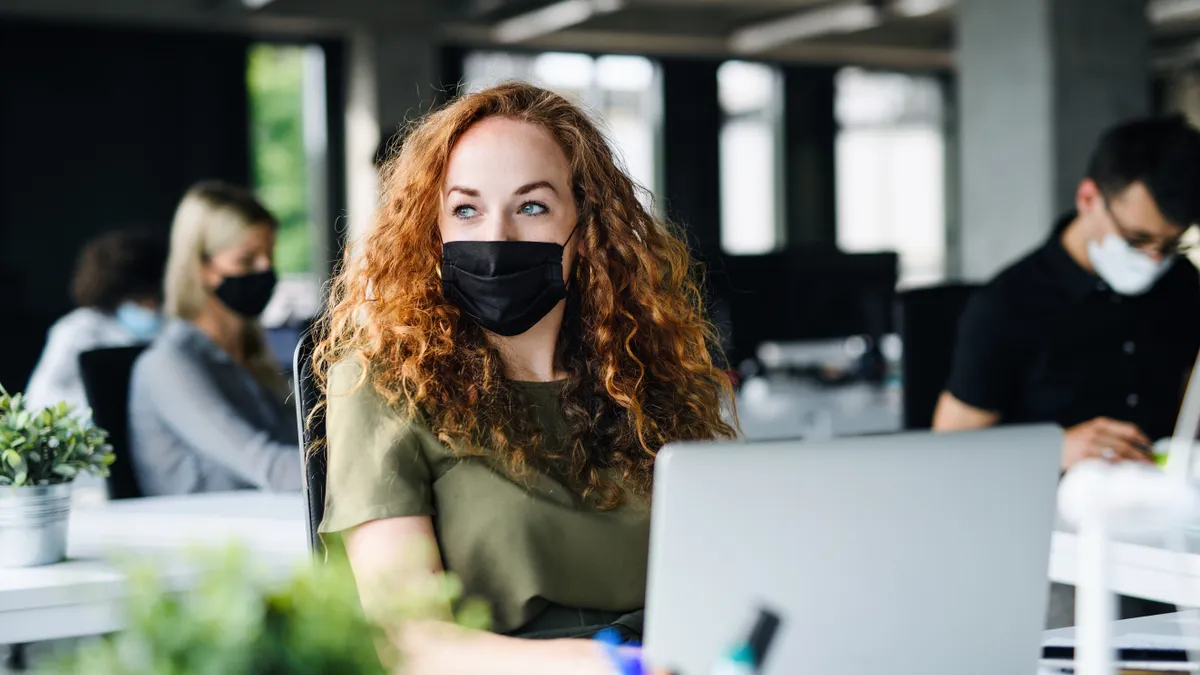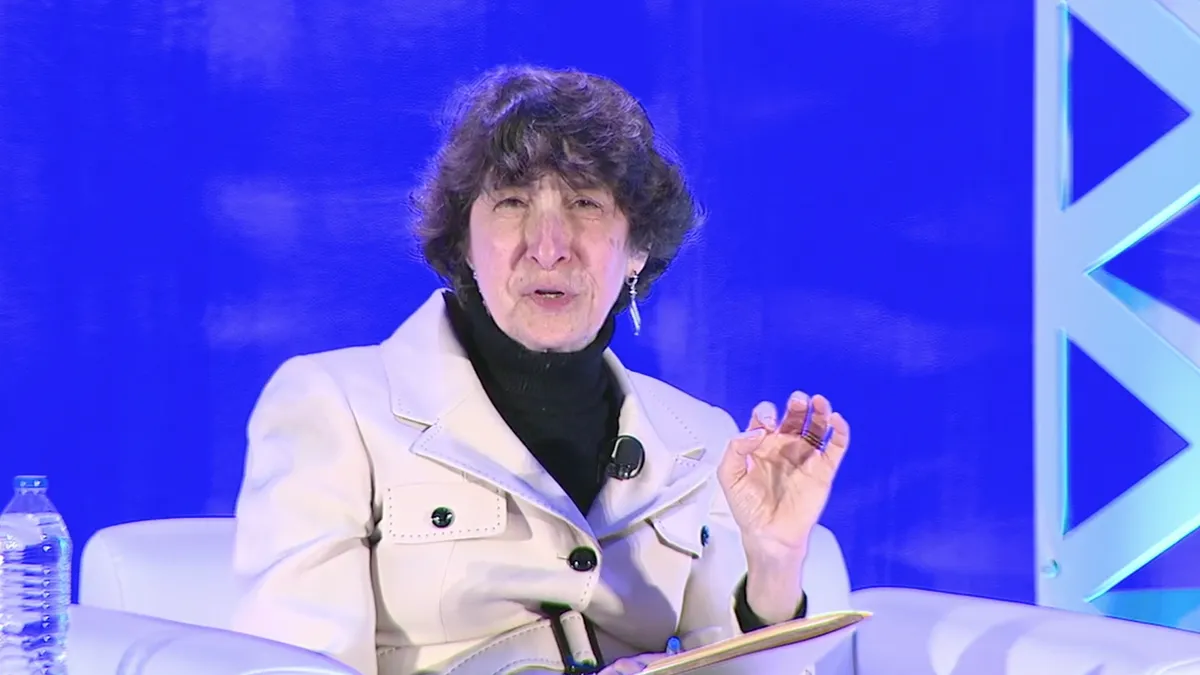The arrival and spread of the delta variant has marked yet another flash point of the coronavirus pandemic.
The variant presents a number of challenges. First, the delta strain of COVID-19 is highly transmissible — so contagious that the Centers for Disease Control and Prevention compared its nature to chickenpox, though biostaticians have picked at the accuracy of this statement. Second, the CDC recently released guidance saying that fully vaccinated individuals should resume wearing masks in public indoor spaces if they are in areas of substantial transmission.
In an internal document obtained by The New York Times, the CDC said that because the variant is highly transmissible, "it was time to 'acknowledge the war has changed.'" It appears many employers have recognized the shift, if independently of the CDC's acknowledgment. Months after the U.S. Equal Employment Opportunity Commission stated employers could require employees to provide proof of vaccination, organizations are starting to issue vaccine mandates. And many are extending options for remote work and renewing safety measures that were rolled back during lulls in the pandemic.
"We're dusting off what we did a year ago," said Michele Ballard Miller, chair of West Coast Labor & Employment at Cozen O'Connor, during an Aug. 5 webinar. Miller discussed the policies employers are revisiting due to the surge in U.S. coronavirus cases, a wave that may be intensified by the back-to-school season, the speakers said.
Masking requirements
The CDC's July 27 masking guidance departed dramatically from its May update, which stated fully vaccinated individuals need not wear face coverings. "The CDC has had a little bit of heat for flip-flopping on their guidance," Miller said.
The agency's statement is "rather broad," Miller said. Because of that, states and the localities are issuing their own mandates. "That's really what's concerning employers," Miller said. California, where Miller practices, comes as a strong example. "California was one of the first states to shut down last March," Miller said. "It's now one of the first to reinstate the mask requirement."
Since Cozen O'Connor's webinar, the Occupational Safety and Health Administration issued guidance echoing the CDC. The updated guidance is advisory, not mandatory, attorneys wrote in a blog post. Should employers choose to reinstate mask rules, they must follow up the change with clear policies and thorough communication, one expert told HR Dive earlier this month.
Health screenings
Temperature scans and symptom questionnaires are making a reappearance, too. "Remember those policies and practices that were in place?" asked Miller. The rules that applied to health screenings conducted at the beginning of the pandemic are still in place, she said.
Employers may, for instance, screen applicants for certain symptoms — coughs, headaches, loss of taste or smell. But it can't conduct such questioning selectively. "We're in a pandemic, but this still fits within our EEO laws," Miller said. "You can screen applicants for symptoms so long as you do it for everyone."
Miller recommended employers check EEOC's frequently asked questions page to find guidance on how federal anti-discrimination laws intersect with pandemic policies.
Employers reinstating health screenings also need to consider the wage and hour implications, Miller said. The Supreme Court of Pennsylvania ruled in July that Amazon needed to compensate employees for time spent waiting for and undergoing security screenings. Courts in California, New Jersey and New Mexico have also held that such time is compensable, Miller noted.
Remote work and leave policies
Employers may also be revisiting remote work and leave policies because of the delta variant.
"When we talk about back to school, remote work will be an issue," Miller said. Issues muddying the waters include continued school closures, hybrid schooling, and school mask and vaccine policies.
"Employers need to be prepared to look at the work from home issue. There are a number of companies that have already instituted complete work from home," Miller said. "It doesn't work for a lot of companies, but it's an issue you need to be aware of, I suspect, with the back to school issue."
Employees can't insist on working remotely, Miller noted. There's no requirement that employees have access to telework. But employers will need to mind the overlay of EEO laws, as workers with certain disabilities may be entitled to an accommodation.
The surge in coronavirus cases may cause employers to revisit their leave policies as well. Former President Donald Trump enacted the Families First Coronavirus Response Act, which expanded the Family and Medical Leave Act to provide paid leave to some workers for coronavirus-related reasons. But employers were no longer required to provide such leave after that provision expired in December. President Joe Biden signed the America Rescue Plan Act, which allows employers to redeem tax credits for offering paid sick leave for the circumstances outlined by the FFCRA and additional reasons, including time off for getting a COVID-19 vaccine; recovering from vaccine side effects; and awaiting results of COVID-19 tests.






















